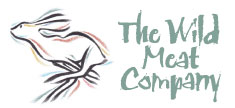Grouse Shortage Update
by Robert Gooch August 09 2018
Many grouse shoots have been cancelled this year due to reduced numbers, which are the result of this year’s extreme weather. We provide an update on the situation and explain why the weather conditions have affected grouse so severely.

In theory, this spring and summer should have been a good breeding season for grouse. Red grouse are very hardy birds (their close cousins, the willow grouse, live happily inside the Arctic circle), so the bad winter should not have been a problem. And the dry, hot summer should have been good for chick survival. Yet it hasn’t turned out this way.
Depleted heather
While the grouse themselves could have withstood the weather, the food they rely on — the heather – could not. As with any other animal, the key to breeding success is heavily dependent on the quality of their food intake as well as the weather at hatching time. In late April/early May, the heather on moors in both the North of England and Scotland was in very poor condition. There was no green spring regrowth anywhere until almost the end of May (or in some places early June), and this meant that hen grouse were eating very poor quality food at a time when they needed to be boosting their feed intake. This seems to have had a significant effect on the quantity of eggs laid and the fertility of those eggs, resulting in small brood sizes at hatching despite the very good weather at this time.
A shortage of insects
In addition, the dry weather started early and this had a massive effect on the supply of insects crucial to grouse chicks in the first week or so of their lives. Without the protein available from these insects, the chicks struggled to get a good start. Where there was a good insect supply, young grouse have done markedly better. It is interesting that some of the early broods have done much better than later ones.
Arid conditions
To compound this, the continuing hot dry weather has made many moors incredibly arid. This inevitably puts grouse chicks under stress and has concentrated brood after brood in areas where they can find some moisture. Not very resilient after their poor start, the young grouse then became susceptible to diseases.
Grouse stocks
The net effect of this is that there will be less grouse to eat! We are talking to our suppliers from the moors and believe we will still have grouse to offer, but the price may increase due to the shortage. We will provide another update in our next newsletter after the season has started.

